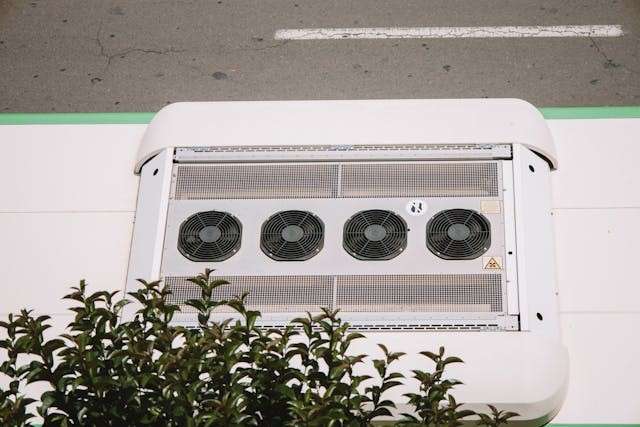The Global Talent visa is a category of UK immigration visa for talented and promising individuals in specialised fields such as science, humanities, engineering, arts, and technology who want to work in the UK. This UK visa introduces an immigration category that permits you to settle in the UK after three years if you are a skilled applicant and after five years if you are a potential candidate. Furthermore, after completing your settlement application and the required residency period in the UK, you may be eligible to apply for British citizenship.
The Global Talent visa which was introduced by the UK government in the 30 January 2020 statement of amendments, went into effect on February 20, 2020. For candidates applying after February 20, 2020, the Global Talent visa replaces the Tier 1 (Exceptional Talent) visa, although the Tier 1 Exceptional Talent route remains open for ILR applications only. The Global Talent visa is fairly similar to its forerunner, the Tier 1 Exceptional Talent visa. It is generally inaccurate to refer to Global Talent as a new path; rather, it is a simplification and expansion of current regulations.
What is Indefinite Leave to Remain (ILR)?
The Indefinite Leave to Remain (ILR) status, which allows foreign people to remain and work in the UK indefinitely, exempts the individual from UK immigration laws. This allows one to enter and exit the country at their leisure. The main benefit of ILR is that you can live freely in the UK without having to worry about visa renewals or leaving the country. In addition, having ILR grants you access to the UK’s benefits system and eliminates the need to pay the immigration health surcharge in order to use the NHS.
Several visa categories lead to Indefinite Leave to Remain (ILR), which is required for any foreign individual intending to settle in the UK. To be eligible for ILR, one must have lived in the nation for at least five years while holding a valid UK visa. There are numerous further requirements, such as demonstrating English language proficiency and passing the Life in the UK test, that must be met in order to obtain the status.
ILR requirements of the Global Talent visa
Qualifying Period of Three or Five Years
After 3 or 5 years in the category, the Global Talent visa leads to settlement/Indefinite Leave to Remain (ILR) in the United Kingdom. The length of the qualifying period will be determined by whether the candidate was endorsed under the leader or emerging leader criteria, as well as if the endorsement was granted by one of the Science bodies.
For those who meet the following criteria, the qualifying term is 3 years:
- Applicants are endorsed as recognized leader under the Exceptional Talent category.
- Applicants endorsed in science or through the UKRI Endorsed Funder route (whether under Exceptional Talent, or Exceptional Promise).
For those who meet the following criteria, the qualifying term is 5 years:
- Candidates approved as an ’emerging leader’ in either arts & culture or digital technology under Exceptional Promise
To reach the applicable qualifying term, time spent under Tier 2 visas can be coupled with time spent under Global Talent (formerly Tier 1 Exceptional Talent/ Promise).
Even if the main applicant is entitled to file for ILR after three years, the qualifying term for family members on Dependant visas is always five years.
Endorsement for Outstanding/Promising Talent
Global Talent (formerly Tier 1 Exceptional Talent/ Promise) visa holders must confirm that they are still endorsed while applying for ILR. There is no necessity to provide documentation of this, but if the endorsement was removed, they would have lost their visa.
Applicants must show that they have earned money in the UK working in their field of competence since receiving their Global Talent/ Tier 1 Exceptional Talent/ Promise visa. This is usually documentation of employment, such as a letter from their employer/college, as well as copies of payslips and bank statements for at least three months. Evidence of self-employment may be required in some circumstances instead.
When can your ILR request get rejected?
To be eligible for ILR, all applicants including Global Talent visa holders must have spent no more than 180 days outside of the UK in any 12-month period during the three or five-year qualifying period. Absences from the UK for jobs, family, or vacations are all counted.
A new regulation that previously only applied to Skilled Worker/ Tier 2 visa holders working as researchers or lecturers has now been extended to Global Talent/ Tier 1 Exceptional Talent/ Promise visa holders approved in science or via the UKRI endorsed funder scheme.
Under the ten-year ‘Long residence’ ILR path, there is a tougher limit on absences from the UK.
What are the requirements for obtaining a global talent visa?
To be accepted for entry in the United Kingdom under the Global Talent visa category, all candidates must obtain sponsorship from one of six recognised endorsing bodies.
The Home Office will forward your application to the Royal Society, UK Research and Innovation (UKRI), Royal Academy of Engineering, or British Academy if you are seeking endorsement in science, engineering, medicine, social science, or the humanities, or other academic professions and research. One of these endorsing organisations will make an endorsement decision based on your profile and the evidence you provide.
If you apply for endorsement in a non-academic discipline such as arts and culture or digital technology, your application will be referred to Arts Council England or Tech Nation.
We are here to help!
The transition from the Global Talent visa category to ILR status might seem complicated to some. At A Y & J Solicitors, our experienced immigration advisers have helped several successful candidates to move to the United Kingdom under the Global Talent visa. We offer pleasant, practical, and skilled legal counsel and help you identify and remedy any flaws in your application.








